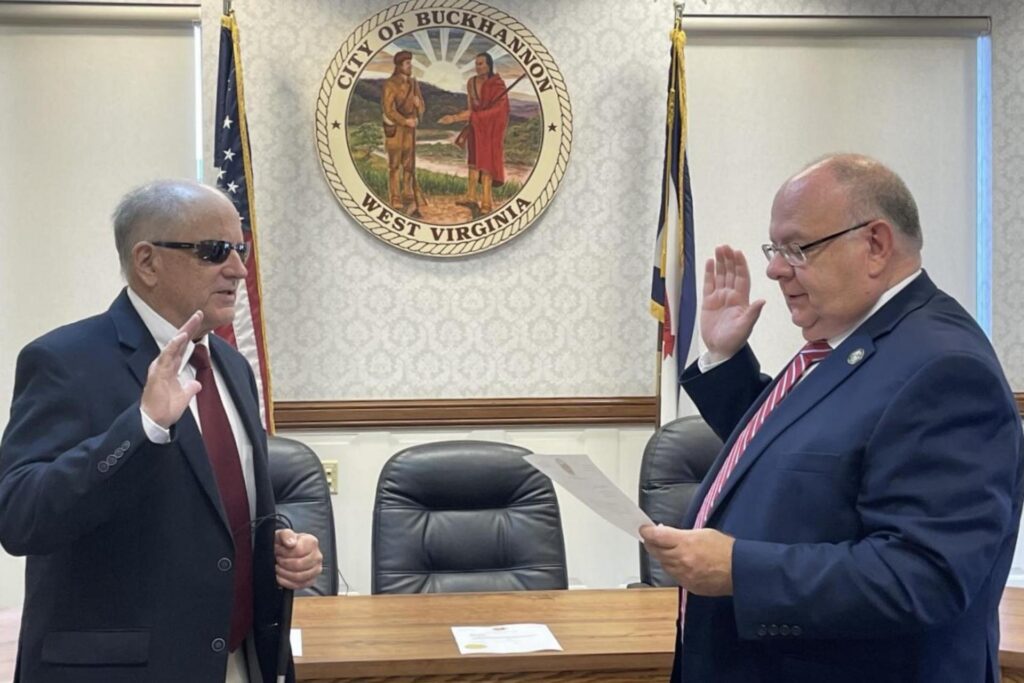BUCKHANNON – The builders of the Atlantic Coast pipeline encountered yet another hurdle last week when a federal court vacated two permits that would have allowed the natural gas pipeline to cross two national forests and the Appalachian Trail.
In a Thursday, Dec. 13 ruling, the U.S. Court of Appeals for the Fourth Circuit invalidated U.S. National Forest Service permits that would have allowed the 600-mile-long, 42-inch wide national gas pipeline to cross the Monongahela National Forest in West Virginia and the George Washington National Forest in Virginia and West Virginia.
On Wednesday, Samantha Norris, spokesperson for Dominion Energy, the primary owner and operator of the pipeline, said the invalidation of the two permits – if upheld – would affect roughly 20 miles of the pipeline.
However, no major changes will result from the Dec. 13 ruling in Upshur and surrounding counties, Norris said, because Dominion Energy and its contractors have already temporarily halted all work on the project as a result of a separate ruling by the same court (the U.S. Court of Appeals for the Fourth Circuit).
“As a result of a separate ruling by the Fourth Circuit imposing a temporary stay on our Fish and Wildlife Service permit, we have temporarily suspended all work on the project,” Norris wrote in an email. “We’ve asked the court for more clarity on the scope of the stay. We do not believe there was any basis for the court to stay the entire permit, when the issues in the case involved only four species and roughly 100 miles of the 600-mile project.”
Norris went on to note that ACP/Dominion will have more details about how the temporary stay will affect work resuming once the court responds to a motion the energy giant filed.
“We will have more clarity on the impact of the court’s ruling when the court responds to our motion,” she wrote.
The Atlantic Coast Pipeline has faced a number of legal challenges to the validity of permits issued through several federal agencies since August, including the U.S. Fish and Wildlife Service, the U.S. Army Corps of Engineers, the National Park Service and now the U.S. Forest Service. Lawsuits filed by attorneys on behalf of environmental advocacy and other citizen groups have challenged the validity of a handful of permits in the Fourth Circuit, with one even resulting in a five-week work stoppage during the summer.
In a standby statement issued last week by national ACP spokesperson Aaron Ruby, Ruby took aim specifically at the federal appeals court, insisting it had undercut the decisions of “dedicated, career professionals at nearly every federal agency” who have reviewed the infrastructure project.
“The court’s decision is at odds with the consensus of the U.S. Department of Interior, U.S. Department of Agriculture, National Park Service and U.S. Forest Service,” Ruby wrote in the statement. “All of these agencies agree that the Forest Service has the full legal authority to approve the Atlantic Coast Pipeline’s crossing of the Appalachian Trail.
“With this decision, the Fourth Circuit has now undermined the judgment of the dedicated, career professionals at nearly every federal agency that has reviewed this project,” the statement continues.
Ruby said this most recent ruling even calls into question whether existing oil and natural gas pipelines that currently cross the Appalachian Trail can continue to exist.
“Under Democratic and Republican administrations alike, for decades 56 other oil and gas pipelines have operated across the AT (Appalachian Trail),” Ruby said. “This opinion brings into question whether or not these existing pipelines can remain in place.”
Ruby said ACP/Dominion would be “immediately” appealing the Dec. 13 ruling, noting the company was “confident” that it would prevail.
When asked about the time frame for submission of the appeal, Norris said Wednesday paperwork would be filed “soon.”














